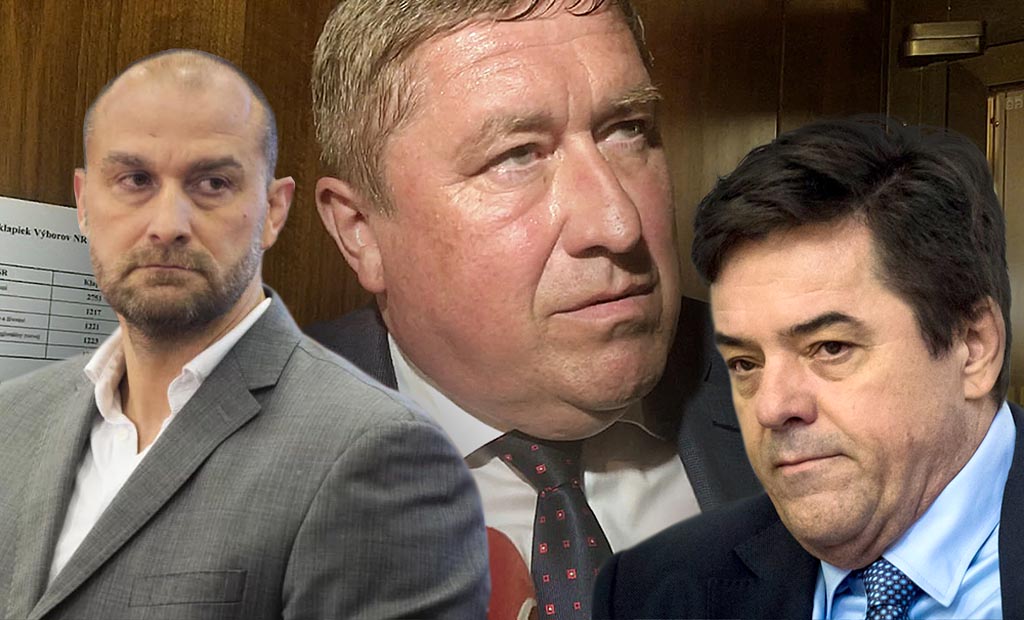by A.S.
The press in Slovakia has been filled with many shocking stories of high-profile criminal cases involving corrupt police, prosecutors and judges, including blackmail, threats and bribes from businessmen, in the past month. In the course of the last year dozens of top law enforcement officials have been charged with corruption. And in the past three months the police have arrested all of the top police officials who left their posts in the period since the murder of investigative journalist Jan Kuciak and his fiancée in 2018, as well as the special prosecutor Dusan Kovacik, who was tasked with leading the fight against the biggest criminals in Slovakia.
Jan Kuciak, a 27-year-old journalist, and his fiancée, Martina Kusnirova, were shot at their home in February 2018. In the months leading to his murder, Kuciak published several investigative reports about the dealings of a prominent Slovakian businessman Marian Kocner, who was known to be closely connected with senior politicians and foreign crime groups. He is currently in jail, serving a 19-year sentence for corruption. He was sentenced on 27th of February, 2020.
A week after the murders of the journalist and his fiancée a large demonstrations against corruption erupted across the country, the biggest since the downfall of communism in 1989. The protests made the then Prime Minister Robert Fico to resign. His interior minister and police chief also stepped down at the time. The alleged co-conspirators of the murder were arrested in September 2018, and Kocner was indicted the following year for ordering the murder.
The investigation of the murder uncovered ties between the special prosecutor Kovacik, a notorious oligarch Norbert Bodor and his friend Marian Kocner. Kocner, a powerful tycoon, was acquitted for the charges of masterminding the murder last month by a special criminal court in Bratislava. A witness and a close associate of Kocner, Peter Toth, described how special prosecutor Kovacik provided Bodor with evidence and informations from criminal investigations on a regular basis.
The trial has uncovered other evidence of corruption and once some of the top officers began cooperating, they were all taken into custody for further investigation, including the former president of the police force, Tibor Gaspar. The indictment of the court read: “Instead of fighting crime, they had crossed over to the ‘other side’ and supposedly created their own criminal group.”
Along with several other top police officials, Gaspar is accused of working directly for Norbert Bodor, who was arrested in connection with a different corruption case in July. Jan Kuciak, a murdered journalist, was one of the many investigative journalists who were researching how deep the ties between Gaspar and the Bodor family really went. The evidence about the suspiciously good connections between Norbert Bodor and the police and government kept surfacing over the years.
Zuzana Petkova, director of Let´s Stop the Corruption foundation in Bratislava, said for the Balkan Investigative Reporting Network, that if the trials will confirm the charges against those men, ““it will mean that the top people in the prosecution service and police in Slovakia were controlled by organized crime, that they were basically part of a mafia group.” And added “The new findings fit into the things uncovered by Kuciak’s murder – in his case, and in the case of other journalists, it turned out that the police were being used for spying on and profiling troublesome reporters; and they worked for the people who are suspected of crimes, instead of investigating them.”
Kovacik resigned as the head of the Special Prosecutor’s Office on November 10, which was two weeks after the charges of corruption, support of a criminal group, abuse of public office and endangering classified information were brought against him. Allegedly he was a part of a secret group that blackmailed businessmen and influenced or stopped crime investigation. The group was controlled by Bodor.
After Kuciak was murdered, Bodor came to the police, before they could detain and interrogate him, as they planned, ready to answer any questions. And even though he testified at the trial, he was never arrested in connection with the murders. But he was arrested in the summer, and charged with money laundering in a huge corruption case.
This year, over 20 important people, including top judges, a deputy secretary at the justice ministry, several oligarchs and a special prosecutor, were charged with serious crimes in Slovakia.

